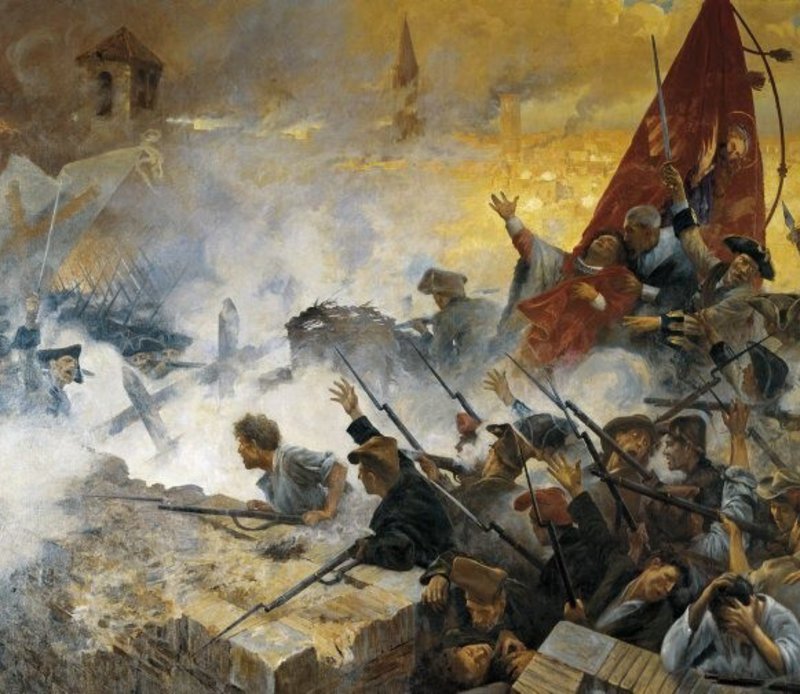Madrid’s colonial attitude
Not a few foreigners are puzzled by the Catalans relentless independence movement. In fact, visiting Catalonia, with Barcelona at its forefront, offers glimpses of a wealthy colourful western region. Furthermore, the reputation of Spanish democratic institutions is good enough, which is surprising given that its Francoist substrate has never been tamed (from the military and police to the high judiciary and diplomatic corps). So, overall, why would Catalans go through the hassle?
Yet, this superficial analysis understates, by definition, essential matters hidden below the surface. Take, for example, Budapest or Warsaw, both vibrant societies, offering a myriad of amenities to the many visitors from all corners of the planet. However, these two countries have not been exonerated from fierce generalised criticism, after their respective governments’ backlash against Brussels’ dictates, among others, on matters of separation of powers or the treatment of refugees.
Thus, events in Spain have been analysed from abroad through wider lenses only lately. Arguably, overcoming the jingoism used by Madrid (including ministers of any political stripe, or its servile media) has intimidated not a few. Fortunately, within the gloom, several factors have come into play, chief of which has been the long incarceration of the nine political prisoners, after Madrid’s mass-beatings of peaceful crowds. Also, key have been the setbacks suffered by the Spanish judiciary in every European jurisdiction where it has requested the extradition of the Catalan exiles. A significant blow was Catalonia’s president being cleared of all charges by the Schleswig-Holstein court.
Despite Madrid’s ruthlessness just now shocking many abroad, it is hardly news in Catalonia, save for some citizens with roots in Spain, or some prone to play the ostrich. In this sense, one of the key names on the Spanish right during the transition to democracy, the vehement and well-read Manuel Millan Mestre, has declared that “for the first time he thinks the Spanish government is treating Catalonia just like a colonial possession”. In fact, as disturbing as it sounds, we deem it an accurate picture of Madrid’s rationale in Catalonia.
When in the War of Spanish Succession three centuries ago the Castilian army, chiefly backed by France, entered Barcelona, it immediately suppressed Catalan institutions in toto. Since then, the “Catalan possessions” of the Balearic Islands, Valencia and Catalonia have been under Madrid’s direct rule, remaining at the will of its prone-to-authoritarianism vindictive institutions. In economic/financial terms, that has meant being relegated to a status of “botin de guerra”, or war booty. This, deeply ingrained into Madrid’s DNA, has not changed, essentially.
Undeniably, things improved after the democratic transition as concessions had to be made, not least to upgrade Spain’s international alienation as Europe’s pariah, to be accepted in both the European Economic Community and the NATO. In Catalonia, local institutions were restored, while a sort of decentralisation was implemented. Yet, roles and attitudes remain: e.g. the fiscal deficit between the “Catalan possessions” and Madrid (i.e. the difference between what they pay to Spanish coffers and what they get back), is reckoned at between 6 and 9% of Catalan GDP, being one of the certainties of Spain’s territorial status quo of the last 40 years.
So, it seems understandable that Catalonia, after a lengthy period of usurpation of its powers and institutions, including 40 years of fascist dictatorship and another 40 of formal democracy, is today exercising, peacefully and democratically, its right for self-determination, pursuing fair administration of its wealth and resources, independent of the capricious dictates from Madrid. The bottom line is that if the kingdom were to honour its claims of being an exemplar democracy, it would already have used words and real commitments instead of threats, intimidation, jail and mass beatings.
Original title: Madrid’s colonial attitude may help understanding of events in Catalonia

